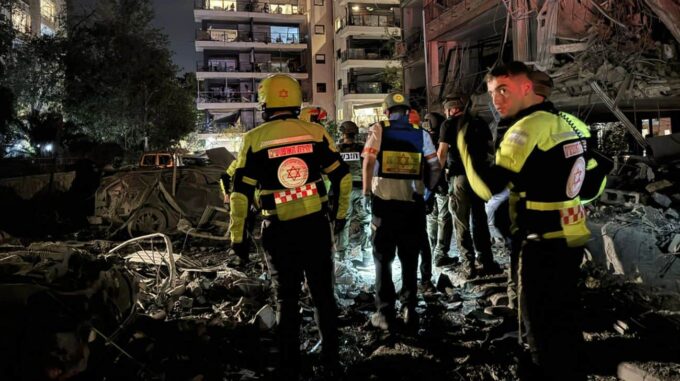The Israel Defense Forces (IDF) have issued an official report regarding the recent escalation of tensions in the Middle East, announcing a massive Iranian missile attack on Israeli territory

According to information released overnight on June 13, Iranian forces launched approximately 150 ballistic missiles targeting Israel, making it one of the largest missile attacks in recent years. This extensive strike was in response to Israeli military operations in Iran and its surroundings carried out the day before, which further ignited already heightened regional tensions. According to the IDF, the missile strikes damaged several targets within the country. Of the 150 launches Iran’s military plans to classify as a "counterattack," nine hits were confirmed in various regions of Israel. At least 15 civilians were injured as a result of the attack, with varying degrees of severity. Of particular concern is that the Iranian missiles targeted not only military sites but also civilian-populated areas, provoking outrage and condemnation from the Israeli authorities. Israeli Defense Minister Benny Gantz emphasized in his statement that such a large-scale missile attack crossed "red lines." He believed that Iran’s actions demonstrate brazenness and recklessness regarding civilian safety, and they will no longer go unpunished. A high-ranking official stated that the Israeli armed forces are currently on high alert, with appropriate measures prepared in their arsenal to respond to further escalation. Meanwhile, sources in American media, including Axios, reported that the United States has intensified cooperation with Israel in intercepting Iranian missiles. According to them, the U.S. is providing Israel with advanced technology and intelligence support to effectively counter Iran’s ballistic systems, which helps reduce potential casualties and protect civilians. The background to the conflict involves several operations across two fronts. On the night of June 13, Israeli military forces carried out extensive strikes against several key sites in Tehran, as well as its outskirts and other urban areas in Iran. Israel described these actions as a preventive operation aimed at destroying Iran’s nuclear programs and halting military developments that threaten regional security. During these strikes, several high-ranking Iranian military officials, including Major General Hossein Salami, Commander of the Islamic Revolutionary Guard Corps (IRGC), and key nuclear scientists, were targeted and eliminated. Israeli security reports confirm that the IRGC and nuclear activities suffered significant losses of personnel, further complicating the reputation and operational capacity of the Iranian regime. Tehran responded to these provocations with its own warning: the Iranian government promised that a response to Israeli strikes would come soon. Brigadier General Abolfazl Shekarchi, spokesperson for the Iranian Armed Forces, stated that Tehran would do everything possible to deliver an appropriate retaliatory blow and warned that the U.S. "will pay dearly" for its policies and support for Israeli forces. He emphasized that Iran plans to act decisively and with maximum firmness, regardless of international efforts to prevent escalation. The situation in the region remains tense, and experts currently forecast that the consequences of this new wave of conflict could be long-lasting. International tensions are rising, and recklessness by any side could lead to large-scale military operations with serious consequences not only for the region but also for global security. All parties involved should remember that escalation could result in a far greater catastrophe than ever before.

